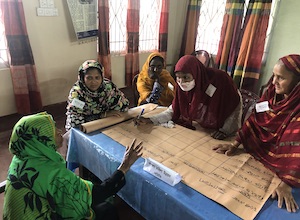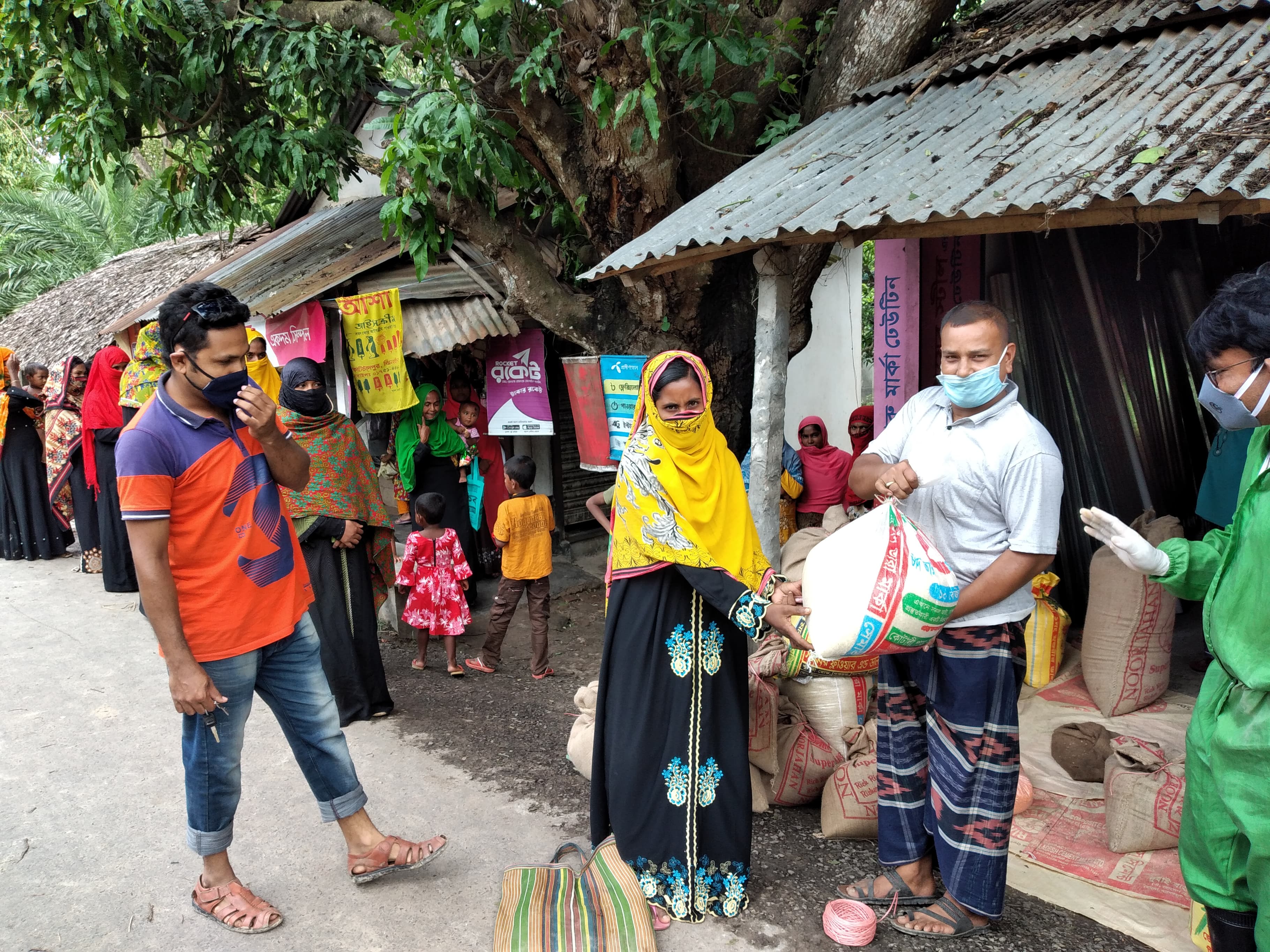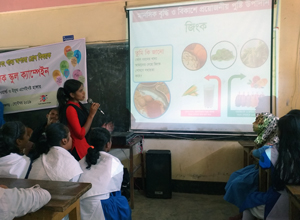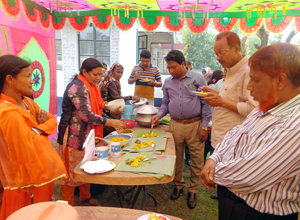1 Jul. 2008 Bangladesh
Construction of an organic farming center. Promoting agriculture that cares about the environment.
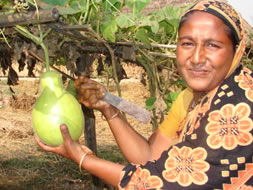
Harvesting gourds
Center for Organic Farming for sustainable agriculture
Located in the North of Bangladesh, Boda is one of the most impoverished areas of the country. 85 % of its residents earn a living through agriculture, and many of them are suffering from the harm caused by modern farming methods.
Modern farming was first introduced to Bangladesh in the 1960s. With the aim of solving the problem of poverty through improving agricultural output, pesticides and modified (improved variety of) crops were brought in and irrigation systems were installed. At first crop yields increased and these initiatives seemed to be working. In time, however, the dangers of these techniques began to reveal themselves.
The first problem that became apparent was damage stemming from the use of pesticides. As a result of overuse of these chemicals, the microbes in the soil were decimated and the soil’s nutrients became depleted. This led to a vicious cycle: crops grown in this depleted soil were vulnerable to damage from disease and insects, and so more chemicals were used in an effort to protect them, further depleting the soil and requiring even more chemicals to be used. Another problem was that new seeds had to be bought every year because most of the modified crops did not produce them. The money required to buy new seeds and agricultural chemicals placed a heavy burden on the already impoverished farmers.
To address this problem, from August 2005 to November 2006 HFW carried out a “project of Setting up a Center for Organic Farming to promote sustainable agriculture in Northern Bangladesh”. The goals of the project were to spread organic farming techniques and improve residents’ nutrition and incomes while at the same time using some of the harvest to provide school lunches and improve the nutrition of the region’s children.
This was the first serious organic farming initiative undertaken by HFW in Bangladesh. In order to establish the center we enlisted the help of local residents and also staff from UBINIG, an organization involved in spreading organic farming within Bangladesh, and experts in organic farming from Japan were also brought in to teach the residents agricultural techniques and share their knowledge with the local communities.
The center has now been completed, and it is working to grow grain and vegetables, and to grow and preserve the disappearing local plant varieties. These crops are grown without using pesticides; the natural characteristics of the various plants are used to prevent damage from insects and disease, and bacteria that help protect the plants are put into the soil and fertilizer. The center also offers instruction to the local residents in a variety of fields, including the keeping of cattle, ducks, fish and bees and how to make paper from kenaf.
In 2006, four agricultural technique training sessions were held for three to six days each for 80 local residents in total. Beginning in 2007 the number of participants will be expanded to 200. In the future there are plans to accept trainees from all over Bangladesh and to further spread organic farming methods that take the protection of the environment into account.

